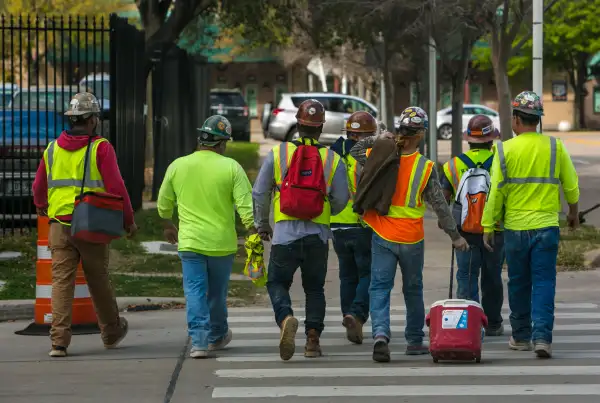Low Gas Prices Are Hurting These Workers the Most

The energy sector was one of the few parts of the economy insulated from the worst effects of the Great Recession, but now, an oil supply glut and subsequent plunging prices have left people who work in the industry drowning in red ink.
For the first time in many cases, oil workers are confronting the kinds of scary economic conditions experienced by many other Americans whose finances were hit hard by the downturn and real estate crisis at the end of the last decade.
In some ways, the oil industry is a victim of its own success. Hydraulic fracturing — aka fracking — significantly boosted production in North America. Other oil producing countries were reluctant to cut their own production and risk losing market share, even in the face of falling prices. On top of that, Iran's reentry into the global oil market has complicated things even further.
For most American consumers, this just translates into cheaper prices at the pump. For oil workers, though, it's been quietly devastating. A whopping 22% of oil industry jobs in the U.S. have been eliminated in roughly the past year and a half., the Wall Street Journal. As a result, rates of defaults on everything from mortgages to car loans to credit card balances are creeping up in the states with the most energy-dependent economies.
Low oil prices are having a ripple effect in these parts of the country, the Journal said: Fewer workers means less demand for goods and services offered by local businesses, and lower tax revenues mean a dearth of dollars for public-sector jobs and projects. But oil workers themselves and their families are bearing the brunt of the impact. "We are clearly seeing the impact of the loss of oil jobs,” an exec at credit bureau TransUnion told the Journal.
